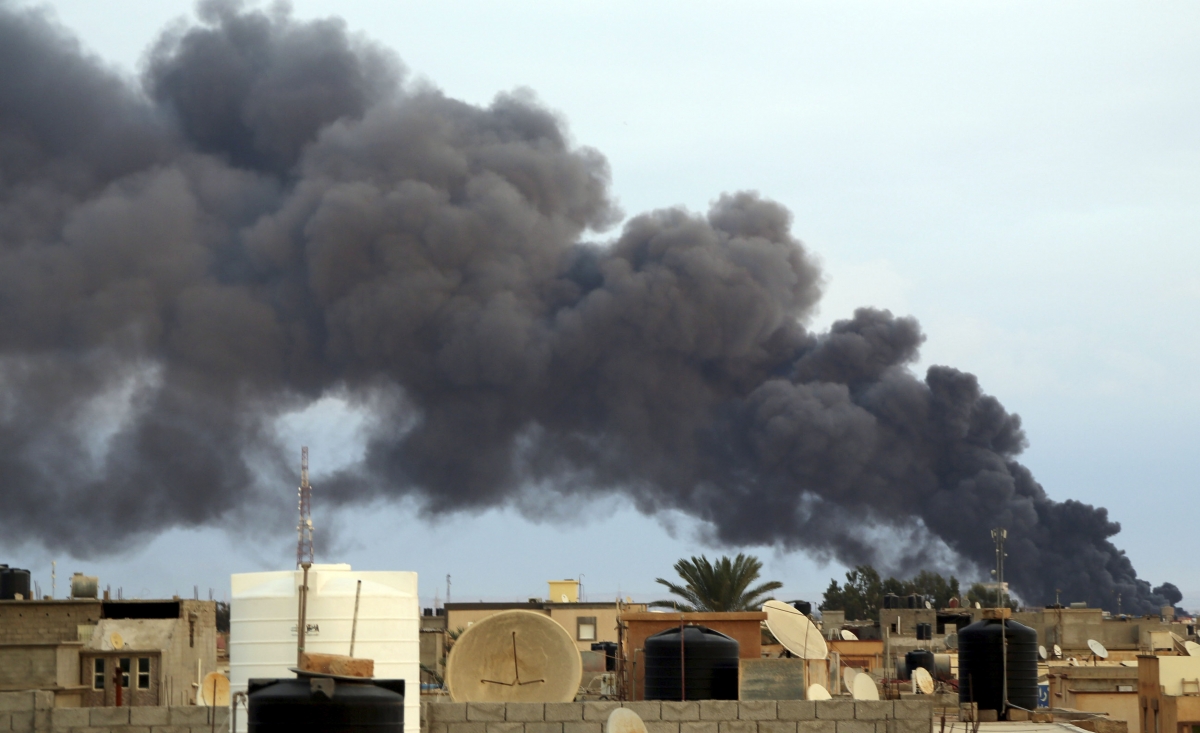News
RSF Drone Attacks Hit Sudan Army as Cholera Deaths Climb

In war-weary Sudan, death rains from the skies while disease festers on the ground. On Tuesday, the paramilitary Rapid Support Forces (RSF) bombarded southern Sudan with drone strikes.
Their targets included a military fuel depot and army base in Kosti, a vital city 320 kilometers south of the capital. The explosions ignited a massive fire, filling the sky with black smoke.
At the same time, Khartoum reels from a deadly cholera outbreak. With over 2,700 infections and 172 deaths in just seven days, civilians are trapped between RSF warfare and public health collapse.

The human cost of RSF’s campaign is devastating. Khartoum, once Sudan’s lifeline, is now a disease hotspot. Cholera is not new to Sudan, but this latest outbreak is fast and deadly. [Photo: Courtesy]
RSF intensifies drone warfare as army regains ground
The RSF, once allies with the army, has turned into its fiercest enemy. Since April 2023, Sudan has been locked in a brutal internal war between the RSF and the national army. After months of bloody battles, the army pushed RSF fighters out of their last strongholds in the greater Khartoum area earlier this month. But the RSF struck back with drones, targeting infrastructure across the country.
Their latest offensive hit Kosti on Tuesday. The drone attack destroyed a fuel depot and struck a military base, setting off massive fires. Eyewitnesses reported loud explosions and rising smoke columns. A military source confirmed the attack, blaming the RSF for escalating hostilities far from the frontlines.
This strike is part of a wider RSF campaign. In recent weeks, they have hit power stations in Khartoum, plunging the city into darkness. These attacks have crippled basic services, especially water and health systems, creating perfect conditions for a cholera outbreak.
The RSF appears to be using infrastructure attacks as a tool of war. By knocking out electricity and water, they deepen the humanitarian crisis and stretch army resources. Experts warn that these tactics may continue as the RSF loses territory but clings to drone capability.
Cholera crisis worsens as war chokes water supply
The human cost of RSF’s campaign is devastating. Khartoum, once Sudan’s lifeline, is now a disease hotspot. Cholera is not new to Sudan, but this latest outbreak is fast and deadly. The health ministry reported over 2,700 cases and 172 deaths in just one week, most in Khartoum State.
In the previous three weeks, more than 2,300 cases and 51 deaths had been reported. Now, deaths are rising daily. The reasons are clear. Power outages have shut down water pumping stations. Without electricity, treatment plants cannot clean Nile water.
Thousands of residents are drinking untreated water directly from the river, often sold in barrels by donkey cart vendors. Doctors Without Borders (MSF) reports a complete collapse of safe water access.
Hospitals are overwhelmed. In Al-Nao Hospital in Omdurman, the city’s main functioning medical center, patients lie on the floors. Staff are short on supplies, space, and energy. “We cannot stop the spread without clean water,” one doctor said. But in war-torn Khartoum, clean water is a luxury.
The RSF drone strikes have made it worse. Each hit on power infrastructure delays recovery and further disrupts the already broken health system. What started as a military conflict has now evolved into a full-scale humanitarian emergency.
Civilians face war in the sky and death in the water
Everyday life has become a survival test. Residents of Omdurman say they have had no power for nearly two weeks. With no way to boil water or store food safely, disease spreads fast. “We fetch water from the Nile,” said resident Bashir Mohamed. “We know it’s unsafe, but we have no choice.”
For the RSF, this suffering may be collateral—or it may be a strategy. Their strikes on water and power systems seem timed to destabilize civilian life and force the army to spread itself thin. Yet it is Sudan’s people who suffer the most. Families dodge drone strikes during the day and bury cholera victims at night.
International aid is scarce. MSF has called for urgent support but warned that war makes access difficult. The fighting has displaced millions, shuttered clinics, and destroyed sanitation systems.
Sudan is at a breaking point. The RSF’s drone war has morphed into a weaponized siege on public health. With cholera deaths rising and cities burning, the world must pay attention. The battle for Sudan is no longer just a fight for control—it’s a fight for survival.
Kenya Insights allows guest blogging, if you want to be published on Kenya’s most authoritative and accurate blog, have an expose, news TIPS, story angles, human interest stories, drop us an email on [email protected] or via Telegram
-

 News2 weeks ago
News2 weeks agoTHE FIRM IN THE DOCK: How Kaplan and Stratton Became the Most Scrutinised Law Firm in Kenya
-

 Economy2 weeks ago
Economy2 weeks agoIran Demands Arrest, Prosecution Of Kenya’s Cup of Joe Director Director Over Sh2.6 Billion Tea Fraud
-

 Grapevine1 week ago
Grapevine1 week agoA UN Director Based in Nairobi Was Deep in an Intimate Friendship With Epstein — He Even Sent Her a Sex Toy
-

 Business2 weeks ago
Business2 weeks agoA Farm in Kenya’s Rift Valley Ignites a National Reckoning With Israeli Investment
-

 Business2 weeks ago
Business2 weeks agoKPC IPO Set To Flop Ahead Of Deadline, Here’s The Experts’ Take
-

 Politics2 weeks ago
Politics2 weeks agoPresident Ruto and Uhuru Reportedly Gets In A Heated Argument In A Closed-Door Meeting With Ethiopian PM Abiy Ahmed
-

 Investigations1 week ago
Investigations1 week agoHow Mexico Drug Lord’s Girlfriend Gave Him Away
-

 Business1 week ago
Business1 week agoSafaricom Faces Avalanche of Lawsuits Over Data Privacy as Acquitted Student Demands Sh200mn Compensation in 48 Hours























